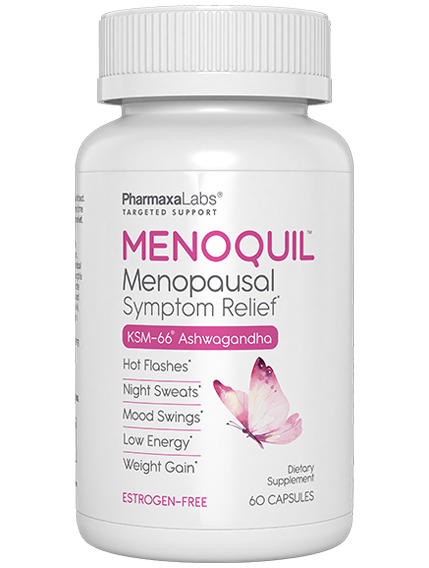Premature Menopause: Causes, Symptoms & Treatment Options

Introduction
Menopause is a natural biological process marking the end of a woman’s reproductive years, typically occurring around age 50. However, some women experience menopause much earlier than expected—a condition known as premature menopause. This can have profound physical, emotional, and mental effects on those affected. For some, the onset of menopause before the age of 40 or 45 can come with unique challenges, symptoms, and considerations. Understanding the causes, symptoms, and treatment options can empower women to take proactive steps in managing their health during these early stages of menopause.
About Premature Menopause
Premature menopause is diagnosed when a woman experiences the symptoms and hormonal changes of menopause before age 40. This is distinct from typical menopause stages, which progress naturally from perimenopause (the gradual hormonal changes leading up to menopause) to menopause (when menstrual periods cease), and postmenopause (the years after menopause). Premature menopause can occur due to various factors, including medical conditions, treatments, or genetics.
Women with premature menopause may notice menopause symptoms similar to typical menopause stages, like hot flashes and mood swings. Still, they may also experience additional concerns related to their age, such as fertility implications and long-term health risks. Recognizing these early signs and understanding the possible causes can help women seek the right care and support early on.
Premature Menopause Causes
Premature menopause is linked to several factors, ranging from genetic predispositions to lifestyle choices and medical treatments. Here are some of the primary causes:
1. Genetic Factors
A family history of early or premature menopause can significantly increase a woman’s likelihood of experiencing it herself. Researchers believe certain genetic markers may predispose women to undergo menopause early, though specific genes involved are still under study.
2. Premature Ovarian Failure (POF)
Also known as primary ovarian insufficiency, premature ovarian failure occurs when the ovaries stop functioning correctly before age 40. This can result from genetic abnormalities, autoimmune diseases, or unknown causes, leading to an abrupt reduction in estrogen levels. With POF, women may still have irregular or occasional periods, but fertility is significantly impacted.
3. Medical Treatments
Treatments like chemotherapy or radiation, particularly when directed at the pelvic area, can damage the ovaries, resulting in early or premature menopause. Similarly, surgical procedures such as hysterectomy (removal of the uterus) or oophorectomy (removal of the ovaries) will induce immediate menopause.
4. Autoimmune Diseases
Autoimmune diseases like lupus, thyroid disease, and rheumatoid arthritis may trigger the immune system to mistakenly attack the ovaries, resulting in decreased ovarian function and early menopause.
5. Lifestyle and Environmental Factors
Smoking is associated with an increased risk of early menopause, likely due to toxins that impact estrogen levels and ovarian function. Other lifestyle factors like excessive alcohol consumption, high stress, and exposure to environmental toxins may also play a role.
These causes can lead to early menopause, but it’s important to distinguish between true premature menopause and reversible causes of ovarian failure, as some cases of primary ovarian insufficiency may respond to treatment and hormone therapy.
Primary ovarian insufficiency (POI), also known as premature ovarian failure, is characterized by the loss of normal ovarian function before the age of 40. A recent study published in the Journal of Ovarian Research employed genome-wide association analysis (GWAS) integrated with expression quantitative trait loci (eQTL) data to identify potential therapeutic targets for POI. The research highlighted specific genetic variants and pathways that could be instrumental in developing targeted treatments for this condition.
Premature Menopause Symptoms
Women experiencing premature menopause encounter similar symptoms as those in natural menopause but may face additional challenges due to their younger age. Recognizing these symptoms can help in seeking timely medical intervention. Here are some common symptoms:
1. Irregular or Absent Periods
The most noticeable symptom of premature menopause is a change in menstrual cycles. Periods may become less frequent, lighter, or stop entirely.
2. Hot Flashes and Night Sweats
Sudden, intense feelings of heat, often accompanied by sweating and flushed skin, are common symptoms in premature menopause. Night sweats can also disrupt sleep and add to fatigue.
3. Mood Swings and Depression
Hormonal changes may lead to mood instability, irritability, and depression. The psychological impact of premature menopause, particularly related to fertility and health concerns, may further intensify these feelings.
4. Physical Changes
Common menopause-related changes, such as weight gain, dry skin, and changes in breast tissue, may occur. Some women report itchy breasts during menopause or sore breasts with no period, both of which can be confusing and uncomfortable.
5. Vaginal Dryness and Decreased Libido
Estrogen plays a role in maintaining vaginal health so lower levels can lead to vaginal dryness, discomfort during intercourse, and a reduced sex drive.
6. Cognitive Symptoms
Many women experiencing premature menopause report memory lapses or “brain fog,” where concentration and mental clarity are impacted.
For younger women, these symptoms can feel unexpected and confusing, particularly when mixed with concerns about missed periods or signs of pregnancy. It’s essential to consult a healthcare provider if these symptoms appear, especially if they coincide with sore breasts and no period or other hormonal changes.
You May Also Like to Read: Menopause Stages: What Happens at Each Phase?
Premature vs. Early Menopause
While both premature and early menopause refer to the onset of menopause before the typical age range, there are distinctions between the two:
1. Premature Menopause
Occurs before age 40 and often results from premature ovarian failure, genetic factors, or medical treatments. This condition often leads to more intense symptoms and may require lifelong hormone therapy due to prolonged estrogen deficiency.
2. Early Menopause
Refers to menopause that occurs between ages 40 and 45. Women with early menopause may experience similar symptoms as those with premature menopause but may be less at risk of long-term health impacts.
It’s essential to distinguish between primary ovarian insufficiency symptoms and menopause-related symptoms, as POI may not lead to a complete cessation of ovarian function, allowing for intermittent periods or signs of pregnancy. While pregnancy after menopause is rare, women with POI may still conceive with assistance, so it’s important to clarify with a doctor.
Premature Menopause Treatments
Though premature menopause can be challenging, several treatment options are available to help manage symptoms and reduce associated health risks:
1. Hormone Replacement Therapy (HRT)
HRT is often recommended for women with premature menopause to supplement estrogen levels, reduce symptoms, and protect long-term health. HRT may decrease the risk of osteoporosis, cardiovascular disease, and other issues related to low estrogen.
2. Lifestyle Changes
Regular exercise, a balanced diet rich in calcium and vitamin D, and avoiding smoking can help manage weight, improve bone health, and support overall well-being. Maintaining a healthy lifestyle is particularly important, as premature menopause can increase the risk of conditions like heart disease.
3. Mental Health Support
The emotional impact of premature menopause can be profound. Therapy, counseling, or support groups can provide coping mechanisms, reduce stress, and connect individuals with others facing similar challenges.
4. Bone Health Supplements
Supplements like calcium, vitamin D, and magnesium may help protect bone density and reduce the risk of osteoporosis. Weight-bearing exercises, such as walking or lifting weights, are also beneficial for bone health.
5. Alternative Therapies
For those interested in non-hormonal approaches, herbal supplements, acupuncture, and mindfulness practices may offer some symptom relief, though more research is needed to determine effectiveness.
While these treatments do not reverse menopause, they can help women manage symptoms and reduce health risks, supporting a better quality of life despite the early onset of menopause.
Premature menopause, defined as the onset of menopause before age 40, has been linked to increased risks of mental health issues, including depression and anxiety. A study published in BMC Psychology explored the psychosocial well-being of women experiencing premature and early menopause. The research found that these women exhibited lower cognitive scores and higher levels of depressive symptoms and insomnia, particularly among those who consumed tobacco. The study emphasizes the importance of addressing mental health concerns in women undergoing premature menopause and suggests that lifestyle factors, such as tobacco use, may exacerbate these issues.
Premature Menopause - Frequently Asked Questions
Takeaway
Premature menopause can be a challenging experience, particularly as it affects young women who may not expect these changes so early in life. From emotional concerns about fertility to physical symptoms like itchy breasts during menopause and fatigue, the impact of premature menopause is both far-reaching and deeply personal. However, with the right medical guidance and support, women can manage these symptoms and maintain their quality of life.
It’s essential to be aware of the signs of premature menopause and to consult healthcare providers if symptoms arise. Treatments such as hormone replacement therapy, lifestyle adjustments, and emotional support can offer relief and protection from the health risks associated with early estrogen loss. For women facing premature menopause, understanding the causes, symptoms, and available treatments empowers them to take control of their health and embrace their journey with resilience.








